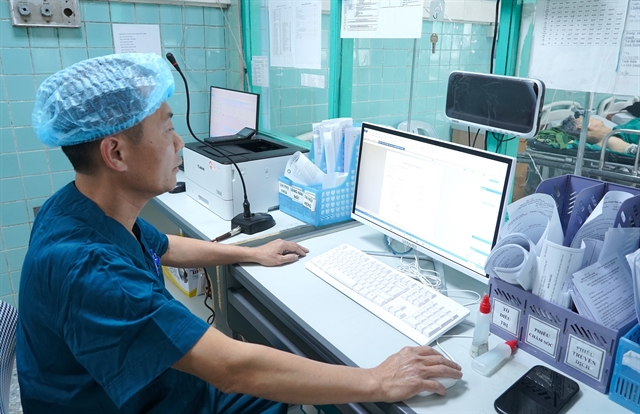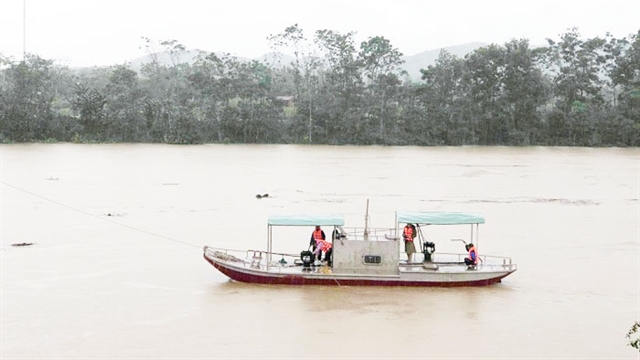 Society
Society

For Lê Thị Hà, head of Sơn Diệm Hydrological Station in Quang Diệm Commune, Hương Sơn District of Hà Tĩnh Central Province, the day usually begins at 1 o’clock in the morning.

|
| Officers of Sơn Diệm Hydrological Station at work. — Photo baogiaothong.vn |
HÀ TĨNH — For Lê Thị Hà, head of Sơn Diệm Hydrological Station in Quang Diệm Commune, Hương Sơn District of Hà Tĩnh Central Province, the day usually begins at 1 o’clock in the morning.
She wakes up at midnight and begins to perform her observation tasks at 1am including measuring water level, water temperature, air temperature, rainfall and sediment.
"That is the daily work of a hydrological observer at the station. But on rainy days, especially rainy season, we have to conduct the measurement every hour or even every 30 minutes at the river," Hà said.
Four times a day, Hà and her colleague row a boat to the middle of the river and measure the water level.
"Observations are taken four times a day and at a certain time: at 1 and 7 o'clock in the morning and afternoon," Hà told Giao thông (Transportation) newspaper.
According to Hà, observers generally record temperature, precipitation and the flood situation and send those daily reports to the Northern Central Hydrometeorology Station and provincial hydrometeorology station, local authorities and agencies for flood prevention and control.
"The work is quite hard because there are only four people working at the station, including two men and two women," said Hà.
"I live in Quang Diệm Commune so I still have time to go home with my family. But others are not lucky like me. One of us lives in Thanh Hóa Province."
Nguyễn Đình Tuấn, an officer of Sơn Diệm Hydrological Station, said: "I don't have time to go home. My wife gave birth to a baby in September. But in October alone, there were three storms, so I had to be on duty all month."
"I miss them but there's nothing I can do. I phone them and resume my work," he added.
According to Hà, the biggest difficulty is measuring the flow rate.
Normally, it is measured once every 15 days. When there’s a flood, they have to measure 24 hours a day, no matter how heavy the rain or strong the water flow.
"We have to row a boat to the middle of the Ngàn Phố River to conduct the measurements. During rainy days, this is extremely dangerous and we could lose our lives," Hà said.
"We have to do the same works every day and it requires persistence. We have to find the right measurement site to get the most accurate data," Tuấn said.
Many people believe the work of the people at the monitoring station is only important during the floods, but few know that the data they collect is stored and used for up to 20-30 years later, according to Tuấn.
"This data is invaluable in learning more about the floods, droughts, heat and are also used in agricultural planning and assessment, engineering, environmental impact assessment and utilities planning," Tuấn said.
It takes four to record data in case such a flood hits. And when a flood hits, they need to be out there measuring the water every hour.
Hà said she still remembered the historic flood on September 20, 2002.
"It sounded like a waterfall. Floodwaters inundated nearly half of the working room. The station's staff had to move all records and documents to a temporary tent on the ceiling of the office to continue their work," Hà said.
"Every 30 minutes, I and three others had to row across the fast-flowing water to perform observations with thousands of timbers crashed into our slim boat. It was so dangerous."
"We only knew we were still alive when we got ashore," said Hà. — VNS




